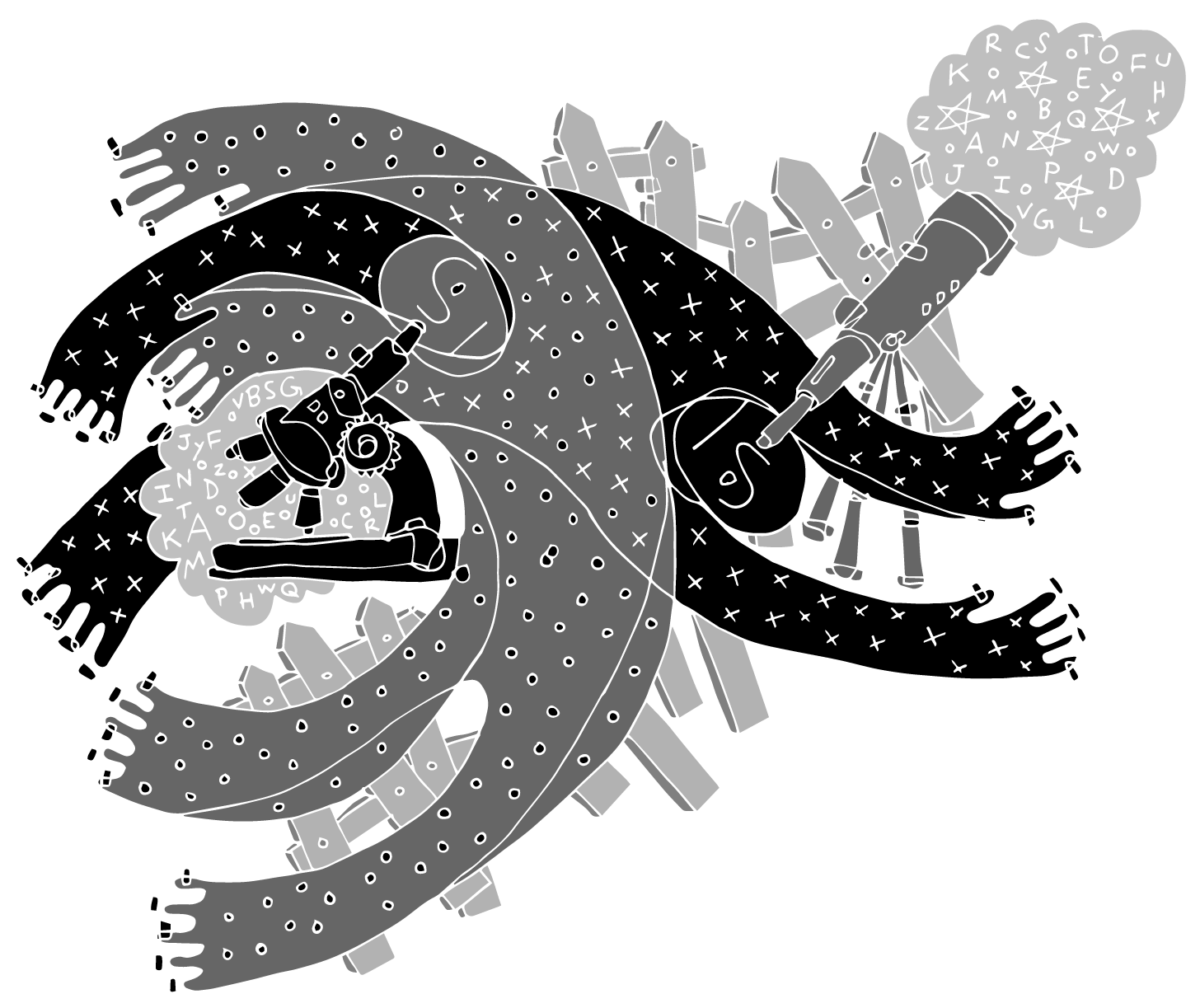
I spent the first two years after graduate school floundering in a down economy. That stretch was capped by 12 months as a perpetually out-of-balance bank teller—by the end I was gasping to begin paying my student loans via any job that was remotely related to my degrees. But illustration and digital fine art do not feed neatly into a clear career path. Graphic design was the only lifeboat within swimming distance from my skill set, so I began applying to design jobs despite my lack of qualifications. Eventually—thanks primarily to desperation, privilege, and dumb luck—I landed a job as a junior book designer.
For the first five years I viewed graphic design as the menial day job that supported my other interests. I made no effort to learn more about design’s principles, culture, or history—I simply banged out book covers like they were bank checks. Thanks to the patient guidance of my then creative director, Jaime Lucero, I gradually evolved into an avid design student. Today, after many years of independent study and in-house practice, I’m the proud design director of two publishing imprints and self-identify as a passionate design advocate.
Yet, I’m not an anomaly. Jaime and countless of my friends, mentors, and heroes have built sparkling design careers without the benefits of a formal education in design. Our stories combine to beg the question: If it’s possible to succeed in the field of graphic design without a degree—if drive and apprenticeship are all that’s required—then what is the value of a design education? If we were solving a design problem, the nag of this question would be our sense that something in the composition needs to change: perhaps our industry’s value proposition, or the definition of design education. On a bipolar educational spectrum between specialized learning that leads to professional certification, and generalized learning that leads to intrinsic knowledge, most graphic design programs appear to sit squarely on the fence—far from the benefits of either pole.
Earlier this year the Society of Graphic Designers of Canada and Canada’s Association of Registered Graphic Designers announced that they would be combining their certification programs to establish a unified Canadian graphic design accreditation standard—an admirable effort that, however, belongs to a bygone era. Certification represents an assurance of quality, but it also bestows status, which implies exclusivity. Current arguments for exclusivity in graphic design fall flat against a digital landscape that has democratized access to design tools and knowhow. The field no longer has certifiable boundaries.
Today, graphic design behaves more like writing than a licensed profession like architecture. It has rules, and levels of skill, but anyone can do it. Nearly 40 years ago, Bruce Archer proposed that design should be viewed as a third pillar of general education, separate from the humanities and sciences, because design is its own unique brand of intrinsic knowledge, and a natural vehicle for self-realization. His thinking speaks directly to design’s current professional and educational challenges.
Moving graphic design education both off the fence and away from specialization/accreditation could clarify the profession’s ill-defined value proposition. This may sound counterintuitive to some—that a less concentrated focus could translate into a greater concentration of cultural value. But, within the overflow of the information age, the alternative—embracing specialization/accreditation—is akin to squeezing water.
As an unschooled practitioner who doesn’t teach, I’m not “qualified” to map the specifics of a de-specialized design pedagogy. But perhaps the story of my career is one signal that something in the composition needs to change.
